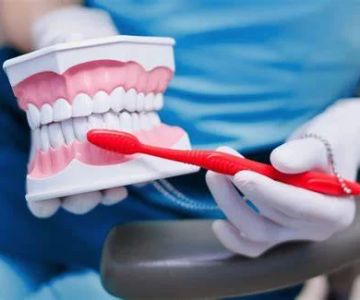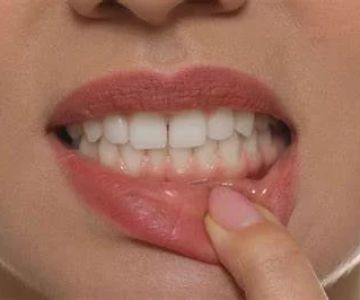Understanding Oral Thrush and Its Causes
Oral thrush, medically known as oral candidiasis, is a common yeast infection in the mouth caused by an overgrowth of the fungus Candida albicans. Many people wonder if oral thrush is caused by poor hygiene, but the answer is more complex than simply attributing it to cleanliness.
While maintaining good oral hygiene is important, oral thrush can affect anyone under certain conditions that disrupt the natural balance of microorganisms in the mouth. Factors such as immune system weaknesses, medication side effects, and certain health conditions play a much larger role in the development of oral thrush than hygiene alone.
For example, elderly individuals and infants are more prone to oral thrush because of their less robust immune systems. Patients undergoing chemotherapy or using inhaled corticosteroids for asthma might also develop oral thrush, regardless of their hygiene practices.
How Poor Hygiene Might Influence Oral Thrush
Poor oral hygiene can contribute to an environment where yeast thrives, but it is not the primary cause. When oral care is neglected, food particles and plaque accumulate, providing a fertile ground for Candida growth. However, healthy individuals with proper immune defenses rarely develop thrush from hygiene alone.
In a recent case, a patient with diabetes developed persistent oral thrush partly due to poor denture hygiene, which allowed yeast to flourish beneath ill-fitting dentures. This highlights how inadequate cleaning of dental appliances, not just the mouth in general, can increase the risk.
Other Major Causes of Oral Thrush
Several conditions and factors can cause oral thrush by upsetting the oral microbiome or immune defenses:
1. Immune System Suppression: Diseases like HIV/AIDS or treatments such as chemotherapy weaken the body's ability to control fungal growth.
2. Antibiotic Use: Broad-spectrum antibiotics kill bacteria that normally keep Candida in check, allowing yeast to overgrow.
3. Dry Mouth: Conditions that reduce saliva flow, such as Sjögren’s syndrome or certain medications, impair natural antifungal defenses.
4. Diabetes: High blood sugar creates a hospitable environment for yeast growth.
5. Smoking: Tobacco use alters oral flora and immune responses, increasing thrush risk.
Recognizing Symptoms of Oral Thrush
Oral thrush typically presents as white, creamy patches inside the mouth, often on the tongue, inner cheeks, gums, and tonsils. These patches can be painful or cause a burning sensation, especially when eating or swallowing.
Other symptoms include redness and soreness, loss of taste, and sometimes cracking at the corners of the mouth. In severe cases, the infection can spread to the throat and esophagus, leading to difficulty swallowing and discomfort.
Effective Treatments and Prevention Strategies
Treating oral thrush usually involves antifungal medications, which may come in the form of lozenges, mouth rinses, or oral tablets. It's crucial to follow a healthcare provider's guidance for the correct type and duration of treatment to prevent recurrence.
Preventive steps include maintaining excellent oral hygiene, cleaning dentures thoroughly, managing underlying health conditions, and minimizing antibiotic overuse.
For patients using inhaled steroids, rinsing the mouth after use reduces thrush risk. Additionally, controlling blood sugar levels for diabetics is essential.
Real-Life Example: Battling Oral Thrush Successfully
Consider Jessica, a young mother who developed oral thrush after a course of antibiotics for a respiratory infection. Despite brushing regularly, she noticed painful white patches and discomfort while nursing her infant. After consulting her dentist, she was prescribed antifungal medication and educated on improving her oral hygiene routine, including cleaning her baby's pacifier properly. Within two weeks, Jessica's symptoms cleared, illustrating that good hygiene combined with medical treatment effectively combats oral thrush.
When to Seek Professional Help
If symptoms persist beyond two weeks or worsen, it’s important to seek professional advice. Oral thrush can signal an underlying health problem, and untreated infections might lead to complications. Regular dental visits and open communication with your healthcare provider are vital.
For tailored treatment options and preventive care, visit Dentistry Toothtruth to access the best oral health services suited to your needs.







 Westgate Dental Arts3.0 (2 review)
Westgate Dental Arts3.0 (2 review) Coventry Family Dental4.0 (247 review)
Coventry Family Dental4.0 (247 review) Familia Dental3.0 (1028 review)
Familia Dental3.0 (1028 review) Dr. Daniel S. Fife, DDS4.0 (31 review)
Dr. Daniel S. Fife, DDS4.0 (31 review) Dentistry At Suburban Square: Michael I. Wollock, DMD4.0 (1228 review)
Dentistry At Suburban Square: Michael I. Wollock, DMD4.0 (1228 review) Comfort Care Dental4.0 (1156 review)
Comfort Care Dental4.0 (1156 review) The Importance of Oral Health Education During Pregnancy for a Healthy Pregnancy
The Importance of Oral Health Education During Pregnancy for a Healthy Pregnancy Why Skipping Dental Checkups Can Lead to Bigger Oral Health Problems
Why Skipping Dental Checkups Can Lead to Bigger Oral Health Problems Best Tips for Brushing Your Teeth Properly for Healthy Gums: Essential Techniques for Oral Health
Best Tips for Brushing Your Teeth Properly for Healthy Gums: Essential Techniques for Oral Health Advantages of Porcelain Dental Restorations
Advantages of Porcelain Dental Restorations How Can Diabetes Cause Tooth and Gum Problems? Preventing and Managing Oral Health Issues
How Can Diabetes Cause Tooth and Gum Problems? Preventing and Managing Oral Health Issues Healthy Habits for Promoting Good Oral Health and Hygiene: Tips for a Healthy Smile
Healthy Habits for Promoting Good Oral Health and Hygiene: Tips for a Healthy Smile